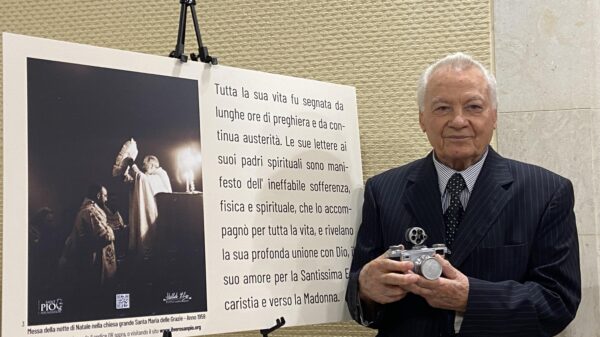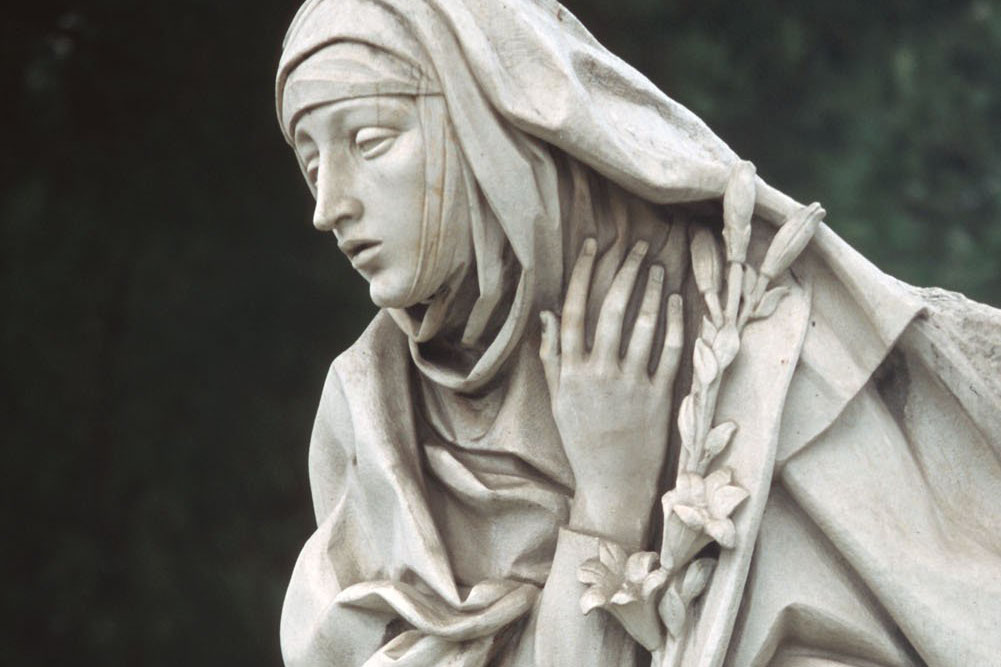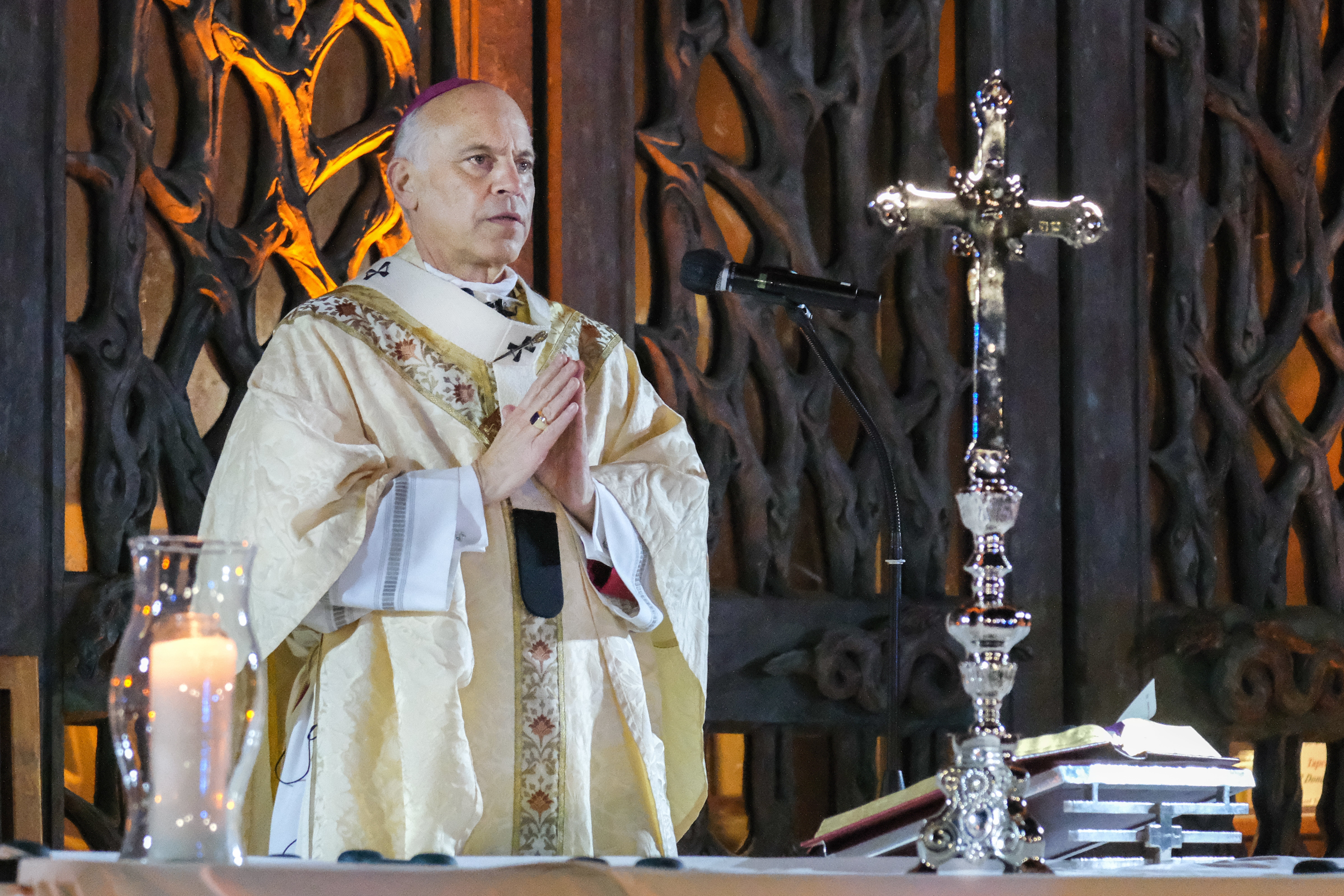In some ways, St. Catherine of Siena might be considered the patron saint of the strongly worded letter. Her missives famously convinced Pope Gregory XI to return to Rome following a period where the popes lived in France for 68 years. Intensity was a hallmark of the 14th-century mystic who dictated her “Dialogue” in a state of ecstasy. The work explores growth in the spiritual life in the form of a conversation between St. Catherine and God.
In my journey of revisiting a spiritual classic a month, the spiritual masterpiece that made St. Catherine one of just four female doctors of the church was a must-read that seemed appropriate for the Women’s History Month of March. The work is filled with pearls of wisdom and helpful analogies for the soul’s growth in virtue or vice. It also provides a window into God’s boundless love and mercy toward sinners.
The Lord tells St. Catherine that he has given us “the Bridge of My Son” so that we do not drown in the “tempestuous sea of this dark life.” There are three states of the soul on this bridge: the first in which the soul rises to God through affection and strips herself from vice and excessive attachment to the things of this world, the second in which the soul is “filled with love, seeing herself so much loved” and in the last step, the soul finds “peace from the terrible war she has been waging with her sin.”
Not all souls travel along the bridge, with some instead traveling the way of perdition, which is described as a river for, the Lord tells Catherine, “creatures are like water that continually runs past, and man also passes continually like the river, although it seems to him that he stands still and the creatures that he loves pass by, and yet he is passing himself continually to the end of his journey — death.” The soul in the river does not succeed in his desire to retain these earthly things that he disordinately loves which keep him moving in the river — drowning — because he is far from God.
The Lord gives St. Catherine a beautiful reminder that the human soul “cannot live without love, but always wants to love something, because she is made of love, and, by love, I created her.” This love is either focused on the Lord or on sensual, transitory things.
The discussion includes many insights into the Lord’s mercy. St. Catherine says to the Lord, “Thou sayest of those who abandon mortal sin and return to Thee, ‘I do not remember that you have ever offended Me.'”
In discussing how the soul moves to more perfect love from an imperfect love that is still mingled with self-love, the Lord tells St. Catherine about how he sometimes withdraws the feeling of his presence from a soul in order that the soul might grow in love.
The Lord observes that “when My Truth returned to Me in His humanity, Peter and the others concealed themselves in the house, awaiting the coming of the Holy Spirit, which Truth has promised them. They remained barred in from fear, because the soul always fears until she arrives at true love.” When the disciples received the Holy Spirit, they were no longer afraid.
Similarly, the soul that recognizes the gravity of their mortal sin, the Lord says, “begins to weep for fear of the penalty, whence she rises to the consideration of My mercy, in which contemplation, she finds her own pleasure and profit.”
The Lord withdraws himself from the soul from time to time, “not in grace but in feeling” in order that the soul may grow in perfection.
For the soul who has come to knowledge of self and utilizes the sacrament of confession, the Lord withdraws himself to “cause her to seek Me in truth, and to prove her in light of the faith, so that she come to prudence.”
“The soul who wishes to rise above imperfection should await My Providence in the House of Self-Knowledge, with the light of faith, as did the disciples, who remained in the house in perseverance and in watching, and in humble and continual prayer, awaiting the coming of the Holy Spirit,” the Lord says.
Entering into St. Catherine’s dialogue with God provides an opportunity for reflection on patience, perseverance and love of God and neighbor. The work speaks to our natural longing to love and be loved and gently guides the reader through spiritual growth aimed at perfect love.
Pope Benedict XVI once said of St. Catherine that she “still today speaks to us and impels us to walk courageously toward holiness to be ever more fully disciples of the Lord.” He encouraged the faithful to “make our own” her words of gratitude and zeal to God in her Dialogue: “out of mercy you have washed us in his Blood, out of mercy you have wished to converse with creatures. O crazed with love! It did not suffice for you to take flesh, but you also wished to die!… O mercy! My heart drowns in thinking of you: for no matter where I turn to think, I find only mercy.”
Lauretta Brown is culture editor for OSV News. Follow her on X (formerly Twitter) @LaurettaBrown6.










































